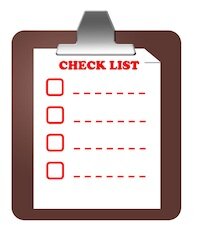I am a 33 year old woman. I received a diagnosis about a year and a half ago of Borderline Personality Disorder. At first I didn’t really understand what it was. I thought, Isn’t what I have more serious than that? I was pretty sure I had something else, something more recognizable. Something I’d actually heard of, for instance. Turns out it’s serious enough. On top of the shitstorm of feelings and thoughts I have on a daily basis, professionals are reluctant to treat people with BPD. We’re notorious for being ‘hard to deal with’.
Therapy Archive
An Interesting Hypothesis
In the early 1950’s, a well known Canadian psychiatrist named Dr. Donald Ewen Cameron developed the concept of “psychic driving.” The idea was that mental illnesses could be cured by reprogramming new narratives into subjects. He recruited from the local community to participate in his studies. Most of his volunteer subjects suffered from relatively minor psychiatric complaints, such as neurosis or depression.
Group Therapy – Panic and Anxiety, Session 1

Trigger Warning: mention of rape, sexual assault
This is the first of an 8 week series reviewing panic and anxiety from a group therapy point of view. It is based on the group therapy services available through Langley Memorial Hospital. Feel free to follow along and answer the questions posted in each section.
Session 1: Exploring Anxiety Disorders
First Therapy Session

In late June of 2010 our last child, a boy, was born. I could sense the distance between my wife and myself growing even further. Intimacy was non-existent, and she could barely stand to touch me now that I clearly had breasts. I had been blaming it on the pregnancy, but the gulf was widening, and I had no idea how much she really knew (which was in reality almost all of it). I was careless, barely even hiding it because she was so conspicuously ignoring it. At home, I was short fused and out of control, although less so since I quit the reserves.
Crisis Checklist

Inspired by work people have done on madness maps and mental health first aid kits, I decided to make a checklist/flowchart to use when I am having a particularly hard time or am in crisis. It was a good process for me to make because it helped me to really think about what has helped me or caused me trouble in the past. I really like that we can make these sorts of tools for ourselves instead of relying on more general (often judgmental) dos and don’ts or advice from people who never know us as well as we know ourselves.
DBT Skills: Distress Tolerance

I’m in a DBT group right now. It’s comprised of four modules, and I just finished my second, which is distress tolerance. Of all the things I could possibly say about it, the most accurate would be that it’s a lot of work. Think of it this way: it’s a lot of practicing things that are aimed at reducing distress, regardless of what mood or state of mind one might be in. Thankfully my emotions are still pretty distressing on a regular basis, so I was able to more or less have something to compare the results to.
Shrink Visit

I would like to welcome the newest member of our writing team, Brynn Tannehill. In her first post with us, she tells us her story of seeing a military psychologist for her first and only time. Thanks for sharing with us, Brynn!
Late second semester of my youngster (second) year, my company officer asked if I had gone to the shrink as he had ordered, and I replied truthfully that I had not. He angrily told me that he didn’t want to write me up for disobeying a direct order, so I’d better f****** do it soon. So, I scheduled an appointment. I was worried what was going to happen when I went in. The psychologist I met was a Navy lieutenant.
HALT! Take Some Time to Think!

HALT: Hungry, Angry, Lonely, Tired. You should never make any important decision when you are any of these things.
Common Cognitive Distortions

In the article on the DBT Chain Analysis I mentioned labeling cognitive distortions. To give you a better idea of what I am talking about, and to clarify what the more common ones are, I have listed them below. If you require further clarification, I have also included the source cited. Filtering – filtering out […]
DBT Skills: Chain Analysis

Who doesn’t want freedom from rapidly spiraling and/or out-of-control cognitive and emotional cycles? I know I do. A couple of months ago, after a particularly grueling weekend during which my emotional and cognitive processes completely derailed, leaving me feeling like an empty trainwreck, I spoke with one of my counselors and he suggested we do […]
- 1
- 2
